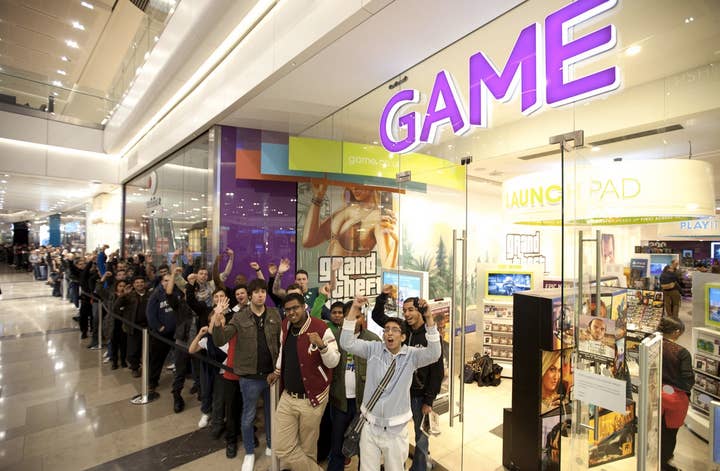Is it time to overhaul how consumers pre-order games?
Retailers want to sell discs early, but can it work?
Physical retailers are calling for a change in how video game pre-orders are conducted.
They are speaking to publishers and platform holders over the possibility of selling games before the release date. Consumers can pick up the disc 1 to 3 weeks before launch, but it will remain 'locked' until launch day.
The whole concept stems from the pre-loading service available in the digital space. Today, consumers can download a game via Steam, Xbox Live and PSN before it's out, and the game becomes unlocked at midnight on launch day for immediate play (after the obligatory day one patch).
It makes sense to roll this out to other distribution channels. The idea of going into a shop to order a game, and then returning a month later to buy it, always seemed frankly antiquated.
"The idea of going into a shop to order a game, and then returning a month later to buy it, always seemed frankly antiquated"
Yet it's not only consumer friendly, it's potentially retailer and publisher friendly, too.
For online retailers, the need to hit an embargo is costly - games need to be turned around rapidly to get it into consumers' hands on day one.
For mainstream retailers, it would clear up a lot of confusion. These stores are not naturally built for pre-ordering product, with staff that are more used to selling bananas than issuing pre-order receipts. The fact you can immediately take the disc home would help - it could even boost impulse sales.
Meanwhile, specialist retailers will be able to make a longer 'event' of the game coming out, and avoid the situation of consumers cancelling pre-orders or simply not picking up the game.
Yet when retail association ERA approached some companies about the prospect of doing this, it struggled to find much interest from the publishing community. So what's the problem?
There are a few challenges.
- There are simple logistical obstacles. Games often go Gold just a few weeks before they're launched, and then it's over to the disc manufacturers, the printers, the box makers and the distributors to get that completed code onto store shelves. This process can take two weeks in itself. Take the recent Nioh. That game was available to pre-download just a few days before launch - so how difficult would it be to get that into a box, onto a lorry and into a retailer in advance of release?
- It also benefits some retailers more than others - particularly online ones, and those with strong distribution channels.
- For big games, there's a potential challenge when it comes to bandwidth. If those that pre-ordered Call of Duty all go online straight away at 12:01, that would put a lot of pressure on servers.
- Piracy may also be an issue, because it makes the code available ahead of launch.
- The end of the midnight launch may be happening anyway, but not for all games. If consumers can get their game without standing in the cold for 2 hours, then they will. And those lovely marketable pictures of snaking queues will be a thing of the past.

None of these obstacles are insurmountable. Getting the game finished earlier before launch is something that most big games publishers are trying to do, and this mechanism will help force that issue. Of course, the disc doesn't actually have to contain a game at all. It can be an unlock mechanism for a download, which will allow the discs to be ready far in advance of launch. That strategy is significantly riskier, especially considering the consumer reaction to the same model proposed by Xbox back in 2013.
As for midnight events, there are still ways to generate that big launch 'moment'. Capcom released Resident Evil 7 with an experiential haunted house experience that generated lots of media attention and attracted a significant number of fans. Pokémon last year ran a big fan event for Sun and Moon, complete with a shop, activities, signing opportunities and the chance to download Mew.
So there are other ways of creating launch theatre than inviting consumers to wait outside a shop. If anything, having the game available in advance of launch will enable these theatrical marketing events to last longer. And coupled with influencer activity, it would actually drive pre-release sales - not just pre-release demand.
However, the reality is this will work for some games and not for others, and here lies the heart of the challenge.
Pre-ordering is already a relatively complex matter, so imagine what it'll be like if some games can be taken home in advance and others can't? How many instances can we expect of people complaining that 'their disc doesn't work'?
If this is going to work, it needs cross-industry support, which isn't going to happen. This is a business that can't even agree on a digital chart, don't forget.
What we may well see is someone giving this concept a go. Perhaps a digital native publisher, like Blizzard or Valve, who can make it part of their PR activity.
Because if someone like that can make the idea work, then others will follow.
Want to read more about the retail and publishing scene? Christopher Dring produces a weekly newsletter dedicated to the subject. Sign up here.
